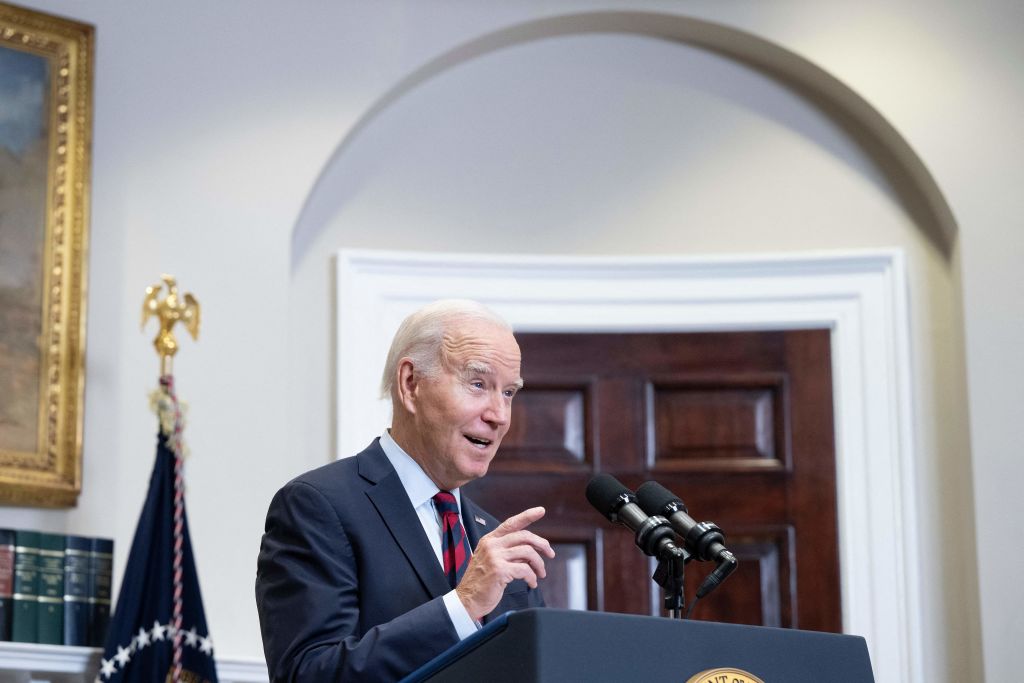The Biden Administration plans to follow through on its promise to expand student loan forgiveness under the Higher Education Act (HEA) in a move that will help borrowers who fit criteria outlined in four specific categories, including those who now owe more than what they borrowed due to interest.
[time-brightcove not-tgx=”true”]
The Education Department announced on Monday that it was negotiating changes to the HEA to deliver debt cancellation, though the exact parameters of that relief are unclear.
“President Biden and I are committed to helping borrowers who’ve been failed by our country’s broken and unaffordable student loan system,” said U.S. Secretary of Education Miguel Cardona in a Monday press release. “We are fighting to ensure that student debt does not stand in the way of opportunity or prevent borrowers from realizing the benefits of their higher education.”
More than 26 million borrowers who applied for up to $20,000 in student loan forgiveness were let down by the Supreme Court’s decision to strike down Biden’s debt forgiveness plan in late June, when the nine-member court ruled that the Administration did not have the authority to cancel debt under the Higher Education Relief Opportunities for Students (HEROES) Act of 2003. Instead, many Americans resumed their student loan payments in October.
Here’s what to know about the new plan the Biden Administration is proposing.
What would the proposed forgiveness entail?
Under the proposed changes, the Education Department is targeting borrowers who fall under four categories: those whose federal student loan balance exceeds what they originally borrowed, started paying off their loans 25 or more years ago, took out loans for programs that gave them “unreasonable” levels of debt, attended schools with “unacceptably high student loan default rates,” or who are eligible for certain repayment plans but have not applied for those programs.
The Department of Education noted that it is also looking to address the needs of borrowers who are facing “financial hardship that the current student loan system does not currently adequately address.”
The Department of Education first announced its intention to pursue broader debt relief for borrowers through the Higher Education Act in June. Part of that plan includes undergoing a rulemaking process that would introduce new regulatory text to make that possible.
Negotiators gathered on Oct. 10 and 11 to discuss regulatory changes for programs authorized by the HEA, which gives the Secretary of Education the authority to make changes to student financial assistance programs during wars, military operations, or national emergencies. The Act specifically allows the secretary to “waive” debt, which the Department of Education says includes federal student loans.
During the latest meeting, U.S. Under Secretary of Education James Kvaal said the Administration wanted to focus on “creating clearer regulations” in relation to the secretary of education’s right to waive student debt, since current regulations are unclear.
Biden has already wiped out $127 billion in loan forgiveness for more than 3 million borrowers through numerous efforts, according to the Department of Education. The Biden Administration previously rolled out a one-time account adjustment, which reviewed borrowers’ loan history to see if they were eligible for forgiveness, as well as $9 billion in additional relief for people who are totally or permanently disabled, enrolled in the public service loan forgiveness program, or income-based repayment plans.
What happens next?
The Department of Education will follow up on their proposed changes to the Higher Education Act in a meeting on Nov. 6 and 7. Meetings are open for public comment from 3 p.m. to 4 p.m. to interested constituents, but people have to sign up to speak ahead of time.
A third session is also set to take place on Dec. 11 and 12.
The proposed changes are not expected to be finalized until next year, and could also face legal challenges.

